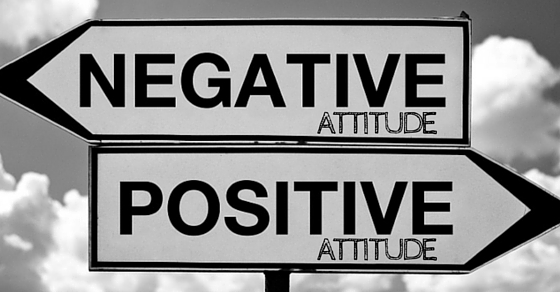
This article on Attitude is part of the Ethics Notes for UPSC that I had prepared.
Attitude is the bent of mind that predisposes one to react positively or negatively towards an object, person, situation etc. (called ‘attitude object’)
- ABC Components of Attitude
- Affective: It relates to the emotions that the attitude object generates in the person. For example, snakes may generate fear.
- Behavioural: The behaviour that it evokes. For example, upon seeing a snake either one runs away or kills it.
- Cognitive: These are beliefs regarding the attitude object. For example, killing the snake is a sin.
- Attitude and Prediction of Behaviour
- Attitude will be highly correlated with behaviour when:
- Attitude is strong, stable and accessible (in memory). These are created due to direct experience and repeated recall.
- If selfish interest gets served by that attitude
- When attitudes are tied to strongly held beliefs (religious, cultural etc.)
- The balance between affective and cognitive components will also determine behaviour
- Attitude will be highly correlated with behaviour when:
- Implicit and Explicit Attitude
| Implicit | Explicit |
|---|---|
| Occurs subconsciously | Conscious decisions |
| Result of old experiences | Result of recent experiences |
| No cognitive component | has cognitive component |
| Affective, i.e. guided by emotions generated | Self reported conscious approach |
- Functions of Attitude
The functions of Attitude can be classified into four categories
- Knowledge: This helps in prediction of behaviour
- Ego Defensive: Recast the information at hand in such a way that it causes least damage to your ego.
- Ego Expressive: To project our self in a particular fashion. For example, if someone is a conservative person, he may not wear bright clothes.
- Adaptive Function: This is to maximize gain and minimize punishment. For example, if the group of your friends is holding a different opinion from you, you modify your opinion to gain their appreciation.
Example of Modification of Behaviour by External Factors
Attitude can be a good predictor of behaviour. For example, if your attitude towards street dogs is negative (hatred, fear) then it is likely that you will attack them with sticks or stones. But imagine you have an elder brother who is a dog lover. In front of him, you would modify your behaviour to avoid negative experiences likely to be faced. Or may be you are in a country where hitting animals is a punishable offense. You are likely to refrain from hitting the dogs in that country.
@ Somesh Sir, as per your instruction on twitter I am posting my question over here.
Sir, I had a question with regard to the riders attached to the question. I mean the words like critically analyse, discuss, elucidate, Comment, Elaborate, Examine, assess, Analyse, Evaluate; often appear in the questions.
I have come around various explanations about these key words but at the same time I have also come across teachers saying that they do not carry much weightage. So my question is do they carry any weightage and if yes what is the stark difference between them, because the explanations going around often than not have overlapping explanations thereby creating confusion with regard to the meaning of specific key word
. (For Example – My understanding is that critically analyse means to write pros , cons and an apt conclusion, illustrate means to substantiate the answer with example, elaborate means to explain the question statement and then explain my stand; but again more or less I end up doing the same in key words like Discuss, comment etc. so what would be the key difference)
Or should I write pros, cons and an apt conclusion in every answer. What approach did you followed in the examination?
Regards